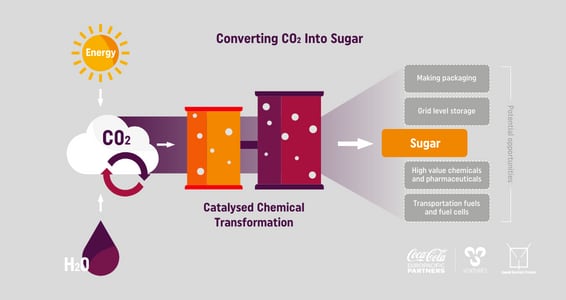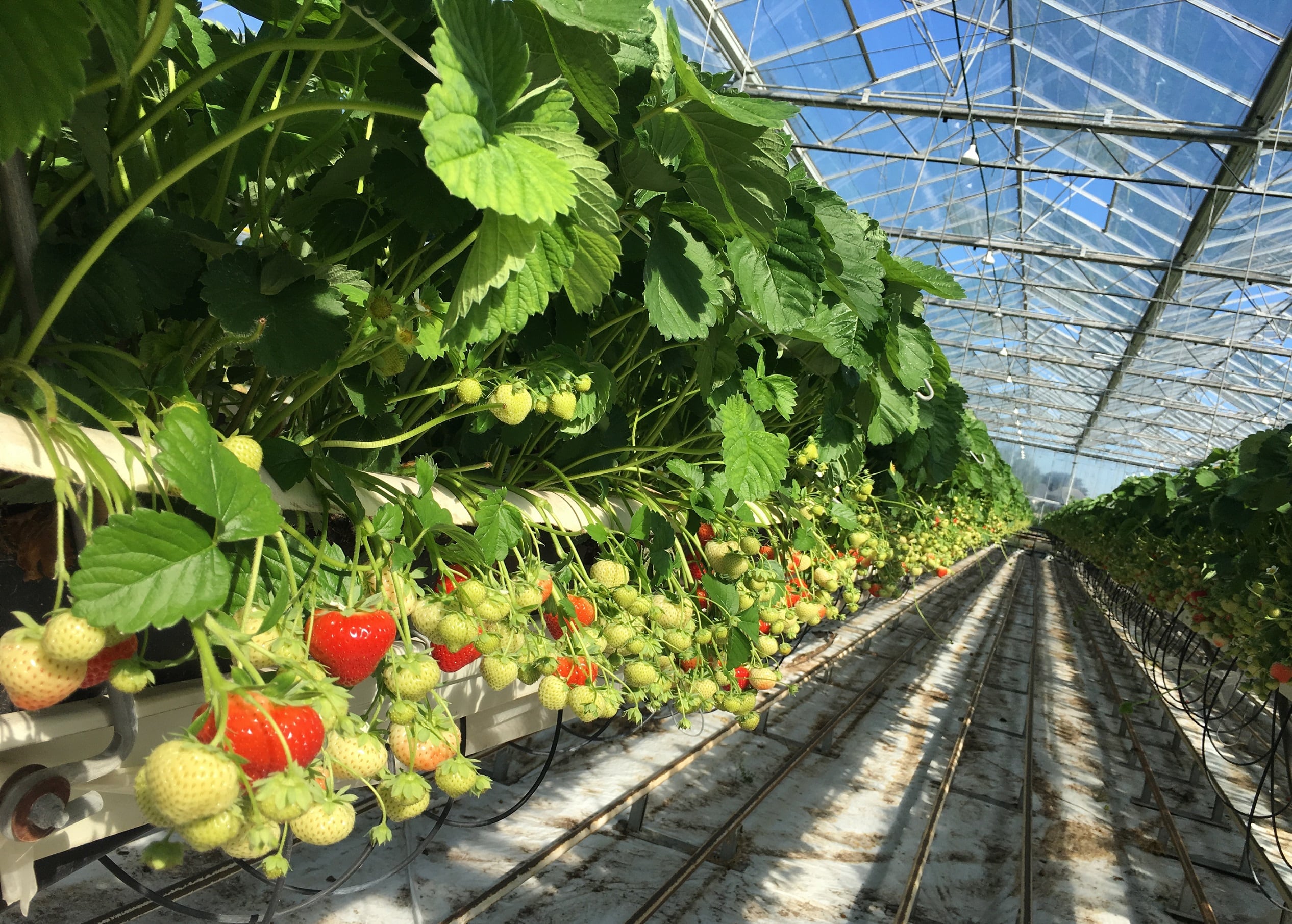The primary goal is to reduce the carbon footprint of agricultural ingredients, but over the longer-term the tech could also help make the conversion of CO2 into PET plastic more efficient by reducing the need for crude oil in the manufacturing process and ‘significantly’ lowering costs.
CCEP wants to reach net zero greenhouse gas emissions by 2040, and says the tech could reduce some of the largest CO2 contributors in its supply chains as well as saving material, transportation and logistics costs.
Optimizing land usage
In 2019, the Peidong Yang Research Group at the University of California Berkeley received a prize from NASA to work on the conversion of CO2 to sugar for potential use on long-haul space missions. Looking ahead to missions to the Moon and Mars, the agency wants to find ways to convert CO2 into glucose for sugar-based fuel, food, medicines, adhesives and other products (while sugar-based biomaterials can be created on Earth by plants, this is not practical for space missions because of limited resources).
Now CCEP, the world’s largest Coca-Cola bottler, will partner with the researchers via its CCEP Ventures innovation investment platform to find ways to reduce the carbon footprint of its agricultural ingredients.
Such ingredients – including sugar – account for around a quarter of CCEP’s overall carbon footprint; as well as taking up arable land that becomes more and more in demand as the global population grows. If successful, the tech would not only reduce emissions associated with sugar manufacturing but also help optimize land usage.
The Peidong Yang research group is a pioneer in developing nanoscience-enabled CO2 conversion technologies using renewable energy, and has developed artificial photosynthetic systems based on nanotechnology that can effectively be powered by solar energy, and convert carbon dioxide in the atmosphere into valuable chemical products, including sugar, biodegradable plastics, pharmaceutical drugs and liquid fuels.

“Air to sugar conversion could significantly impact our ability to preserve the natural world,” said professor Peidong Yang from the University of California, Berkeley. “This is a bold scientific vision that would bring immediate environmental benefits, fundamentally transforming the production and distribution of goods across the world. We are pleased to be working with CCEP Ventures on research that could make a significant impact on our ability to create a more sustainable future.”
“At CCEP, we want to grow sustainably, producing beverages that people love while helping to build a better future for our business, communities and the planet,” said Craig Twyford, head of CCEP Ventures. “CCEP Ventures is helping us find solutions to industry challenges and provide funding to make these foundational technologies a reality. We’re excited to be involved in this project that could lead the industry in the development of transformational technology capable of converting CO₂ into more complex, usable goods.”




